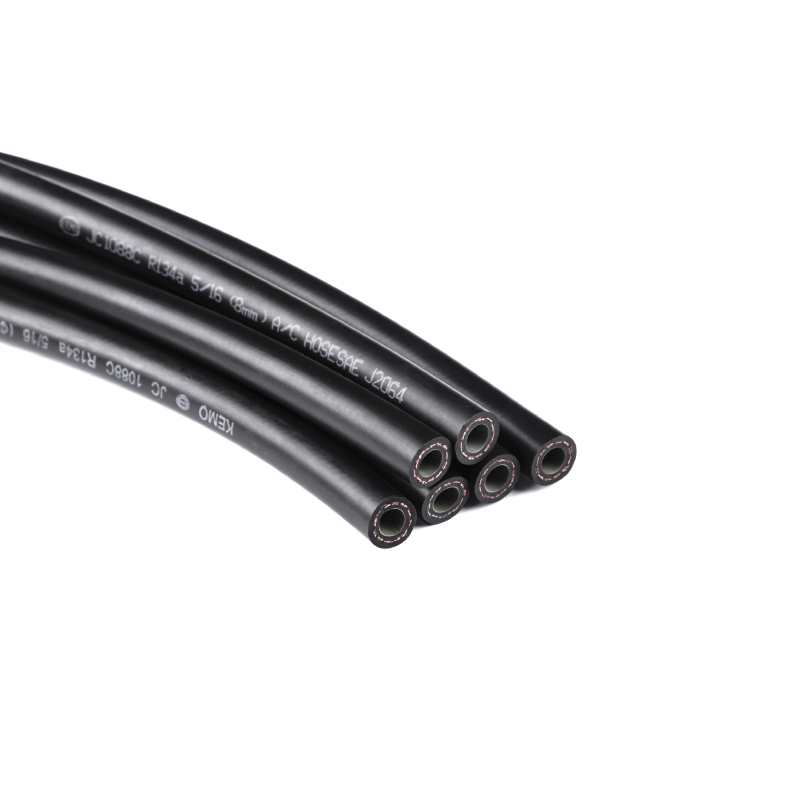Choosing the Right Fuel Hose for Your Vehicle's Needs
Dec . 04, 2024 11:41 Back to list
Choosing the Right Fuel Hose for Your Vehicle's Needs
Understanding Car Fuel Hoses Function, Importance, and Maintenance
Car fuel hoses are essential components of a vehicle's fueling system, playing a critical role in transporting fuel from the tank to the engine. Often overlooked, these hoses are vital for the efficient operation of an automobile. In this article, we will explore the function of fuel hoses, their importance, signs of wear and tear, and tips for maintenance.
The Function of Fuel Hoses
Fuel hoses are flexible tubes made to carry fuel under pressure from the fuel tank to the engine. They are crafted from special materials designed to withstand the corrosive effects of gasoline, diesel, or alternative fuels. The main function of these hoses is to ensure a steady flow of fuel to the engine, enabling it to operate smoothly. The fuel must pass through various components, including fuel filters and injectors, before reaching the engine's combustion chamber.
In addition to transporting fuel, these hoses also play a role in maintaining the overall pressure in the fuel system. Any breach or failure in the hoses can lead to a drop in pressure, resulting in suboptimal engine performance. Consequently, the fuel delivery process is crucial for both performance and fuel efficiency.
The Importance of Quality Fuel Hoses
Using high-quality fuel hoses is imperative for several reasons. First and foremost, the safety aspect cannot be overlooked. A compromised fuel hose can lead to leaks, which pose significant fire hazards and environmental risks. Gasoline and diesel fuel are highly flammable, making leaks potentially dangerous both for the vehicle and its occupants, as well as for the surrounding environment.
Moreover, inferior quality hoses can degrade over time, leading to increased maintenance costs. Regular replacements of subpar hoses can add unnecessary expenses to vehicle ownership. Therefore, investing in high-quality fuel hoses not only ensures better performance but also reduces long-term costs.
Signs of Wear and Tear
To maintain the integrity of the fuel system, it is essential to regularly inspect fuel hoses for signs of wear and tear. Common indicators that a fuel hose may need replacing include
1. Cracks or Splits Over time, fuel hoses can become brittle due to exposure to fuel and heat. Any visible cracks or splits are a clear sign that the hose needs replacement.
2. Soft Spots If you find areas on the hose that feel unusually soft or spongy, this indicates that the material is deteriorating, which can lead to leaks.
car fuel hose

3. Fuel Odor A strong smell of fuel could signal a leak in the hose. If you notice this, it’s time to inspect the hoses immediately.
4. Deformation or Swelling Hoses should maintain their shape. Any bulging or deformity could indicate pressure issues or material failure.
5. Visible Corrosion or Discoloration If the exterior of the hose shows signs of corrosion or unusual discoloration, it could be a symptom of chemical breakdown.
Maintenance Tips
Preventative maintenance can extend the life of your fuel hoses and ensure optimal vehicle performance. Here are some tips for keeping fuel hoses in top condition
1. Regular Inspections Develop a routine to check the condition of the fuel hoses. Look for any signs of wear and tear as described above.
2. Replace When Necessary If you notice any issues during your inspection, replace the hose immediately. It's better to be proactive than to wait for a breakdown.
3. Use Quality Products Always opt for high-quality fuel hoses that meet industry standards. Consult your vehicle's manual or speak with a professional for recommendations.
4. Avoid Overheating Keep the engine cool and monitor temperature levels, as excessive heat can deteriorate hose materials.
5. Professional Servicing Have your vehicle checked by professionals during regular maintenance intervals. They can spot potential issues that may go unnoticed.
In conclusion, car fuel hoses are critical components that should not be neglected. By understanding their function and importance, recognizing signs of wear and tear, and practicing good maintenance, you can enhance vehicle performance and safety. Remember, timely action can mean the difference between a smoothly running vehicle and costly repairs.
